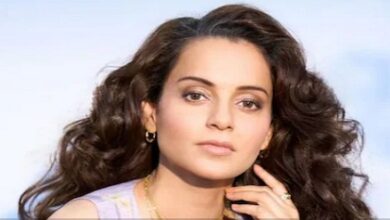Locarno Embraces Bollywood Legend Shah Rukh Khan

“I don’t want to sound like a fanboy,” Giona A. Nazzaro, artistic director of the Locarno Film Festival says sheepishly, “but Shah Rukh Khan is the quintessential power of cinema. There is no cynicism, there is no manipulation. Just this basic faith that you can tell a story through your persona and touch on the very profound building blocks of emotions.”
Nazzaro, it is fair to say, is a Khan fanboy. Discussing the Bollywood superstar — winner of Locarno’s 2024 lifetime achievement award, the Pardo alla Carriera Ascona-Locarno Tourism — he compares Khan to the “popular glamor of a hero of the working class, like Marcello Mastroianni” combined with the “elegance, the arrogant elegance, of someone like Alain Delon…. In Shah Ruhk Khan, I can see the trajectory from Rudolph Valentino to Tom Cruise, and it’s all there in one person. And this guy doesn’t even seem to break a sweat when he does it.”
Khan will be honored with Locarno’s lifetime achievement honor on Aug. 10 and will take part in a Q&A session at the festival Aug. 11.
As part of its tribute, Locarno will screen Sanjay Leela Bhansali’s Devdas, the 2002 drama starring Khan as a wealthy law graduate who returns from London to marry his childhood friend, Parvati (played by Aishwarya Rai). When his family rejects their marriage, however, he descends into alcoholism and seeks refuge with a warm-hearted courtesan (played by Madhuri Dixit).
Nazzaro notes Locarno could have picked almost any film from Khan’s decades-long career to illustrate his big-screen impact.
“I’ve seen some of his films only in India because there are no subtitled versions available, and everyone is perfectly understandable, without the dialog,” says Nazzaro. ” I mean that you see the trajectory of a hero, [the] basic belief that if you are a working person, if you are a decent person, you can be a hero. He embodies it. He’s a devout Muslim, he’s never made films that are not consistent with his own beliefs.”
While creating a global career, Khan has remained entirely true to himself and the traditions of Indian cinema, Nazzaro says.
“In Khan, you have the true unmistakable elements of Indian cinema, the music, the dances, the songs,” says Nazzaro, “and then you have this astounding understanding of how to put all these mythological elements of narrative into a modern context, using modern technology to reach an apex of what I would say is an almost pre-modern understanding of the power of cinema…. I don’t want to wax poetic, but [in Western cinema] we needed modernism to understand our narrative structures. Then we needed to question that, with post-modernism. Now we have post-post-modernism. It seems we cannot regain the last innocence in the pleasure of narration. And here comes Shah Rukh Khan, and with one slo-mo shot, you can see this man can move mountains.”





